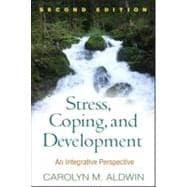How do people cope with stressful experiences? What makes a coping strategy effective for a particular individual? This volume comprehensively examines the nature of psychosocial stress and the implications of different coping strategies for adaptation and health across the lifespan. Carolyn M. Aldwin synthesizes a vast body of knowledge within a conceptual framework that emphasizes the transactions between mind and body and between persons and environments. She analyzes different kinds of stressors and their psychological and physiological effects, both negative and positive. Ways in which coping is influenced by personality, relationships, situational factors, and culture are explored. The book also provides a methodological primer for stress and coping research, critically reviewing available measures and data analysis techniques.








